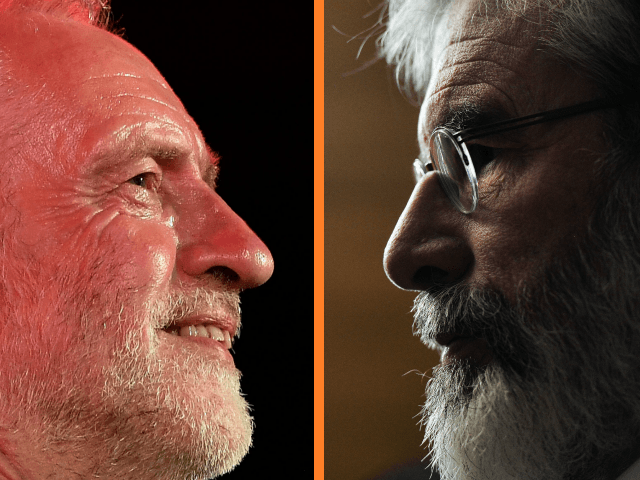The Queen’s speech, which lays out the governing party’s legislative programme, has been postponed until June 21st, with the announcement of an agreement between the Conservative and the Democratic Unionists delayed by the Grenfell Tower fire. This has left Sinn Féin time to seek meetings with the Labour Party in Westminster.
The announcement of an agreement from the Democratic Unionist Party (DUP) to support Theresa May’s minority administration, expected on June 14th, was called off amidst the emerging tragedy at Grenfell Tower in London.
This has left Sinn Féin time to seek meetings with the Jeremy Corbyn-led Labour Party before the Queen’s Speech, which the socialist hopes to vote down in order to topple the government.
Historically, Sinn Féin has not taken up its seats in Parliament – although it claims parliamentary salaries, allowances, and office space – because its frontmen do not recognise the legislature’s jurisdiction in Ulster and will not swear oaths to the monarch.
The Sun newspaper reports there are fears it may now do so for the first time in order to put Corbyn in Downing Street – although the party has officially denied that it is planning to do so.
The DUP are a Protestant, working-class party with a socially conservative platform, although they are not as enthusiastic about privatisation and public sector cuts as the Tories. Their primary focus is protecting Ulster’s place within the United Kingdom – a position backed by a large majority of voters in the Province when they were given a choice between Great Britain and the Republic of Ireland in a referendum.
Parties which support the United Kingdom are described as “unionist”, whilst parties pushing for Ulster to unify with the Irish Republic are described as “nationalist” or “republican”.
Sinn Féin, a broadly left wing party, is the largest of these, and regarded as being “inextricably linked” to the terrorist Provisional Irish Republican Army – usually referred to as ‘PIRA’ or ‘the IRA’ – by the authorities in both the United Kingdom and the Republic of Ireland, as well as the U.S.
Throughout much of the 20th century, the IRA waged a terror campaign which involved assassinations of police, soldiers, and politicians in Ulster and mainland Britain. They also carried out bombings against pubs, shopping centres, school buses, and Remembrance Day memorials for servicemen who died in the Second World War.
Labour leader Jeremy Corbyn was sympathetic to the IRA’s campaign, attending memorials to honour terrorists killed during firefights with security forces, boasting he was “happy to commemorate all those who died fighting for an independent Ireland”.
Shadow Chancellor John McDonnell openly endorsed the terror campaign, telling Sinn Féin MPs “the ballot, the bullet and the bomb” could unite Ireland in 1986. He declared it was “about time we started honouring those people involved in the armed struggle” in 2003.
Shadow Home Secretary Diane Abbott, too, told a newspaper that “every defeat of the British state is a victory for all of us,” and that “a defeat [for the IRA] in Northern Ireland would be a defeat indeed”.
She also described the Province as an “enclave of white supremacist ideologies”.

COMMENTS
Please let us know if you're having issues with commenting.